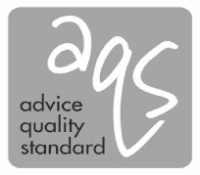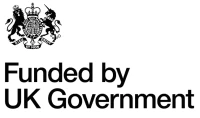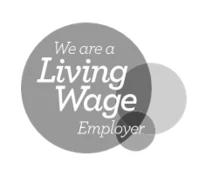
Published

Karen Wilkins
A study of food bank voucher fulfilment over three months in the Summer of 2021 showed that 47.5% of issued vouchers went unfulfilled for at least seven days, possibly leaving struggling clients and their families without food. We looked into several possible reasons for this, and found large discrepancies between the voucher fulfilment rate between several of the teams within Citizens Advice Portsmouth. Possible reasons for this are given, as well as recommendations for further research.
The statistical analysis of the data collected in this study indicate a few surprising things. Firstly, there were no strong indicators that voucher fulfilment was predicated on variables such as a client’s proximity to their food bank, as previously predicted. Instead, it seems that intra-office influences are stronger.
This conclusion is easily come to when looking at the breakdown of voucher fulfilment by issuer team. More clients went without their food parcels when they sought advice certain teams, other teams had a far better success rate. The triage team (overseen by the Generalist team) also had a better success rate.
This could imply any number of things, but it does raise the following questions:
- Is there a difference in advice style between the high-fulfilment teams and the lower-fulfilment teams?
- Is there a difference in team leader instruction between these two teams?
- Is there a difference in clients between these teams that could determine their own need for a voucher, or simply influence their willingness or intention to attend a food bank?
One possibility is that advisors in the high-fulfilment teams could be only identifying clients with a far greater need for a voucher. Alternatively, the lower-fulfilment teams may be over-identifying clients and issuing food bank voucher to the less-needy. If the latter is true, the only drawback could be a potential strain on Portsmouth’s food banks. If the former is true, however, it could mean that there are possibly clients who are going without vouchers.
It is clear that further investigation is required in this situation, especially as the poverty situation in the UK does not seem to be shifting.
Our recommendations for further study would be the following:
- A qualitative investigation into the advisors who issue food bank vouchers. This study would focus on their process for deciding who needs a voucher and how they issue a voucher - what information they provide the clients about food banks and how they operate. A comparison within and between teams would reveal any discrepancies in service-wide advice provision.
- A qualitative comparison between Citizens Advice Portsmouth’s food bank fulfilment rates and other Citizens Advice offices in the UK. This research would look at whether this low fulfilment rate is a nationwide problem or a localised issue.
The above research, if successful, would be helpful in several ways. It could identify necessary training that needs to be developed or delivered and it could identify national trends that could be tackled nationwide.
Further to the questions and recommendations asked above, Citizens Advice Portsmouth conducted further small qualitative research with advisers and Team leaders from several teams. Results showed that there was no difference in Team leader instructions about the provision of vouchers. Advisers highlighted that client’s often felt embarrassed to accept vouchers and that the new Community Pantry or larder was seen as a preferred alternative.
It was also evident during advice session clients may be given a lot of information, this may have, a, impacted on the immediate need for a voucher, or b, negated the need for the voucher at all.
Other local offices provided information around fulfilment and other insights highlighting many factors that may influence results.
Overall, our findings showed that there were many factors that may have affected the results from our research, the ever-changing environment during the pandemic and the restrictions at the time would all have influenced results.
For a copy of the full report – please email research@caportsmouth.org.uk.







